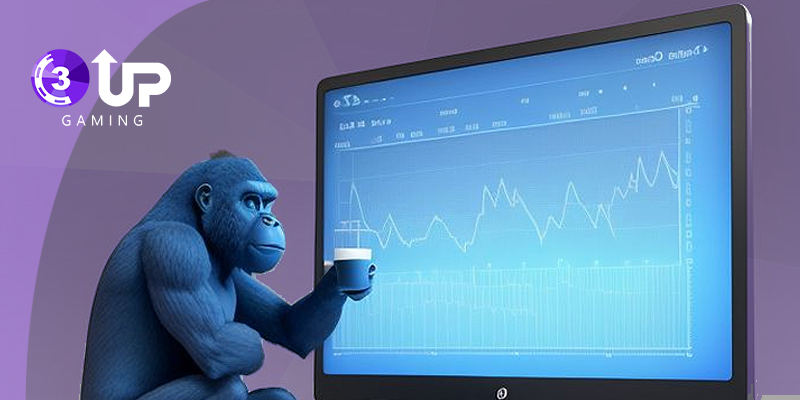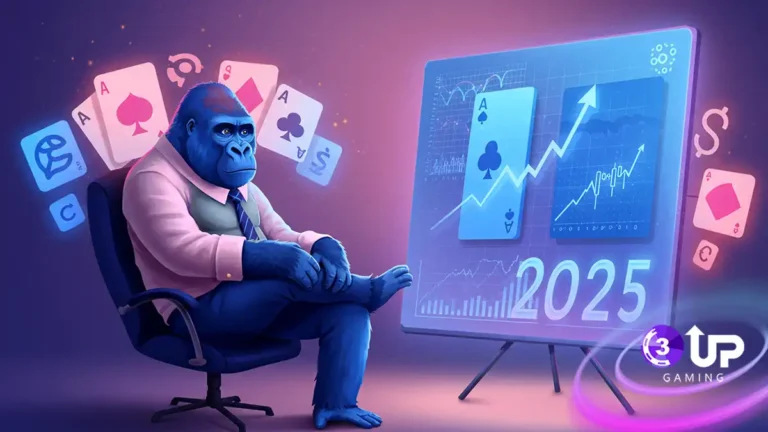B2B Poker Software Provider in 2025! Looking to launch your own poker platform? Partnering with a B2B poker software provider is the smartest way to enter the competitive online gaming space. These providers deliver powerful, ready-to-use solutions that let you focus on growth, branding, and player experience without the heavy lift of building from scratch.
What is a B2B Poker Software Provider?
A B2B poker software provider is a company that develops, licenses, and maintains poker platforms tailored specifically for businesses looking to operate their own online poker rooms.
These providers do not serve end-users directly. Instead, they work behind the scenes, empowering entrepreneurs, casinos, gaming startups, and even large-scale entertainment companies to launch fully operational poker platforms under their own branding.
Unlike B2C services that aim to attract players, B2B providers focus on delivering a technologically advanced foundation. This includes the game engine, back-office systems, cashier integration, player management, and often, legal advisory. Their role is critical they equip businesses with everything needed to run a poker ecosystem, from front-end interfaces to back-end analytics.
This model enables rapid deployment without requiring clients to build software from scratch. Businesses benefit from a mature infrastructure while retaining creative control over branding, marketing, and user acquisition.
With the rise of white-label and turnkey gaming solutions, B2B providers like 3upgaming are making it easier than ever for non-technical founders and seasoned gaming operators alike to enter and thrive in the online poker market.
Key Features of B2B Poker Software Solutions
B2B poker software solutions come equipped with a robust array of features designed to satisfy both the operator and the end-user.
At the heart lies a high-performance game engine supporting popular variants such as Texas Hold’em, Omaha, and customizable formats. This engine ensures seamless, low-latency gameplay with intuitive interfaces for both mobile and desktop users.
White Label Poker Provider Services: Build Your Poker Room Fast
A comprehensive back-office suite complements the game mechanics. It includes real-time monitoring dashboards, advanced analytics, CRM tools, and player behavior tracking. Operators can manage rake structures, loyalty programs, promotions, and multi-table tournaments with precision, all from a single control panel.
Another standout feature is the cashier module, which supports multi-currency transactions and integrates with global payment gateways. This ensures smooth deposits and withdrawals, complying with international security standards such as PCI DSS.

Additional elements often include anti-fraud algorithms, Random Number Generator (RNG) certification, affiliate management systems, and real-time chat moderation tools. Some providers even offer artificial intelligence-based player segmentation and behavioral insights.
In short, B2B poker software isn’t just about the game it’s about delivering a stable, secure, and fully manageable business infrastructure that can compete in a saturated and highly regulated industry.
Why Businesses Choose B2B Poker Software Providers
Choosing a B2B poker software provider is more than a technical decision it’s a strategic move toward efficiency, scalability, and credibility. For most operators, the allure lies in avoiding the massive time and financial investment required to develop a poker platform in-house. B2B solutions offer a shortcut to market entry without compromising on quality or compliance.
These providers bring years of industry experience, meaning the software is already battle-tested for scalability, user engagement, and security. Their teams constantly refine and update the platform based on market trends, ensuring clients remain competitive. This is especially crucial in a space where innovation and user experience can define a brand’s success or failure.
Furthermore, support is a cornerstone of B2B offerings. Whether it’s technical assistance, legal consultation, or marketing advice, clients benefit from a collaborative partnership rather than a transactional relationship.
Businesses also prefer the flexibility in commercial models ranging from revenue share to one-time licensing allowing them to choose a structure that aligns with their goals.
Ultimately, the decision to go B2B stems from the need to launch fast, scale smartly, and focus resources on branding and growth rather than software development.
Top B2B Poker Software Providers in the Market
The B2B poker software landscape is populated by several prominent players, each offering distinct advantages depending on your operational needs. Among the top-tier providers is 3upgaming, a name recognized for its agile white-label solutions, scalability, and advanced backend management. With tailored features for both emerging startups and established gaming brands, they are widely trusted in the B2B sector.
EvenBet Gaming is another notable player, offering cross-platform compatibility and an extensive library of poker variations. They cater to international markets with multi-language support and a modular design that allows operators to scale effortlessly.
Connective Games stands out for its AI-driven fraud detection and intuitive user experience. Their emphasis on fairness and security has made them a go-to choice for operators concerned with maintaining player trust.
Other respected providers include Playtech and iPoker, though their offerings tend to cater to larger operators with more complex requirements. Regardless of size, the best providers share a few common traits: continuous innovation, strong technical support, high server uptime, and deep industry expertise.
Choosing the right provider isn’t just about features it’s about aligning with a partner that understands your vision and has the tools to make it a reality.
Customization and Scalability in B2B Poker Software
In an industry where user experience and brand identity are everything, customization is not a luxury it’s a necessity. Leading B2B poker software providers allow businesses to fully personalize the look and feel of their poker platform, from lobby design to card animations, table themes, and tournament structures.
Beyond aesthetics, customization extends to core functionality. Operators can define rake systems, blind structures, player tiers, loyalty rewards, and even introduce gamified elements like missions or badges. This level of granular control allows brands to carve a unique niche in a saturated marketplace.
Best Online Poker Software in 2025 – Top Platforms Reviewed
Scalability is equally important. Whether you’re starting with a few hundred players or planning to host tens of thousands globally, the software must be capable of handling the load without compromising performance. Top providers offer cloud-based architecture, elastic servers, and geographic load balancing to maintain stability even during peak usage.
This dual ability to customize and to scale gives operators the freedom to experiment and grow without rebuilding infrastructure from scratch. In dynamic markets where trends shift quickly, such flexibility can be the defining factor between stagnation and sustainable success.
Security and Fair Play Standards in B2B Poker Software
Security is the bedrock of any online poker operation. Without airtight safeguards, even the most beautifully designed platform will fail. B2B poker software providers implement enterprise-grade security protocols to protect operators and their players from malicious threats and systemic vulnerabilities.
This includes data encryption using TLS protocols, SSL certification, and secure data storage practices. Most platforms integrate multi-layer authentication systems and session validation checks to prevent account hijacking and fraudulent access.
Fair play is enforced through RNG certifications, ensuring that each hand dealt is mathematically random and unbiased. Providers typically undergo audits from independent testing labs like iTech Labs or GLI to validate the fairness of their systems.
Moreover, anti-cheating algorithms monitor player behavior to detect patterns that suggest collusion, chip dumping, or bot usage. Suspicious accounts are flagged and reviewed by automated systems or security teams.
The emphasis on security and integrity not only protects your brand but also builds trust among players. In a space where reputation is currency, choosing a B2B provider with high security and compliance standards is non-negotiable.
Cost and Licensing Models of B2B Poker Software
One of the most attractive aspects of working with a B2B poker software provider is the diversity of cost structures available. Operators can choose between different licensing models depending on their budget, business plan, and growth projections.

The most common model is the revenue share, where the provider earns a percentage of the operator’s monthly earnings. This lowers the barrier to entry and aligns the provider’s success with the client’s profitability. It’s ideal for startups or operators testing new markets.
Alternatively, flat-fee licensing is available for those who prefer predictable monthly costs. This model often includes software usage rights, hosting, and support but may require additional fees for updates or premium features.
Some providers offer hybrid models, combining upfront setup costs with lower ongoing percentages. Others provide complete buy poker software options for operators seeking full ownership and long-term control over their platform.
Hidden costs like custom development, white-label branding, and legal compliance services should be clarified in advance. The best providers maintain transparency and tailor solutions that scale both financially and technically with your business.
Read More: Game Theory Optimal Poker Software – Master GTO Strategy
The Role of a B2B Poker Software Provider in Online Poker Rooms
A B2B poker software provider serves as the technological backbone of any online poker room. While the operator focuses on branding, user acquisition, and community engagement, the provider ensures that the infrastructure powering the platform is stable, secure, and feature-rich.
They deliver the game logic, tournament engines, server-side operations, and player management systems all integrated into one cohesive ecosystem. Furthermore, they handle updates, patch bugs, introduce new features, and adapt the platform to evolving market regulations.
Support doesn’t end at launch. Providers continue to assist with analytics, game balancing, and even player behavior insights to optimize retention and monetization. In many cases, they offer tools for affiliate management, loyalty programs, and promotional campaigns helping operators compete effectively from day one.
In short, a B2B provider isn’t just a vendor they’re a partner. Their role is foundational and ongoing, ensuring that the poker room operates with minimal downtime, maintains compliance, and delivers a seamless experience for players across devices and geographies.
Integration of Payment Solutions in B2B Poker Software
Seamless and secure financial transactions are essential to the success of any online poker platform. B2B poker software providers integrate sophisticated payment systems to manage deposits, withdrawals, and in-game purchases with efficiency and compliance.
Top-tier platforms support multiple currencies, including cryptocurrencies, enabling global accessibility. Payment gateways are selected based on geographic coverage, transaction speed, and regulatory compliance, ensuring users can transact with confidence.
Most providers embed fraud detection layers to monitor suspicious financial behavior such as chargebacks, multiple account abuse, or laundering attempts. These systems work in real-time and are continually refined to adapt to emerging threats.
Best White Label Poker Software for iGaming Businesses
The cashier interface itself is typically user-friendly, mobile-responsive, and equipped with verification protocols like KYC and 2FA. Operators can configure bonus deposit triggers, withdrawal limits, and hold periods based on their business model.
Through these integrations, B2B providers reduce the friction of handling payments, enabling operators to focus on scaling their user base. Payment flexibility and security are not just technical necessities they are competitive differentiators in the poker ecosystem.






